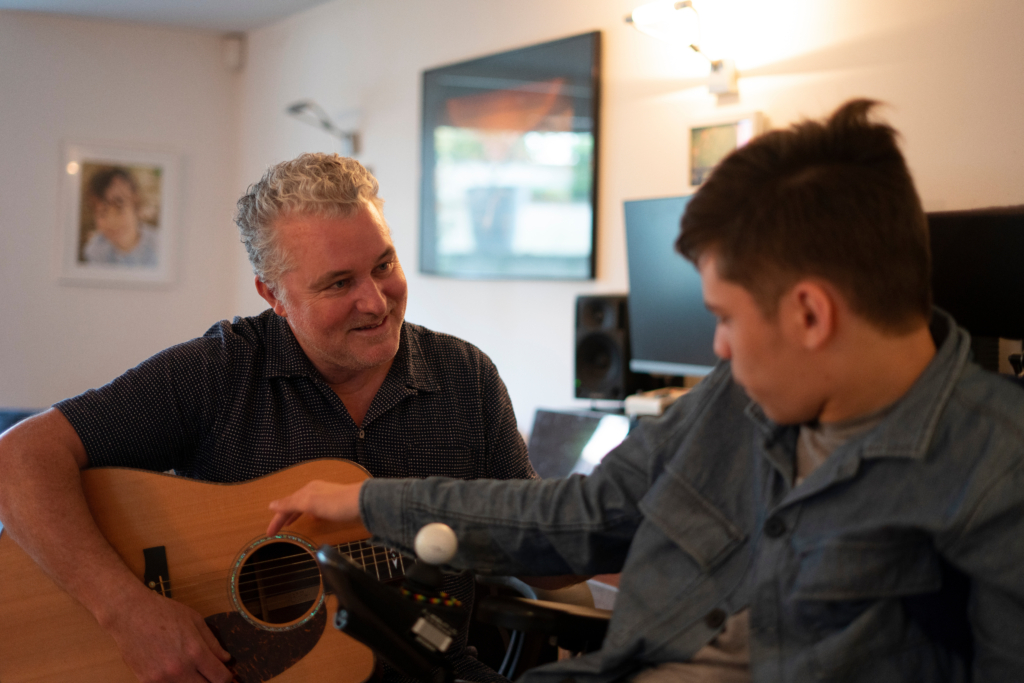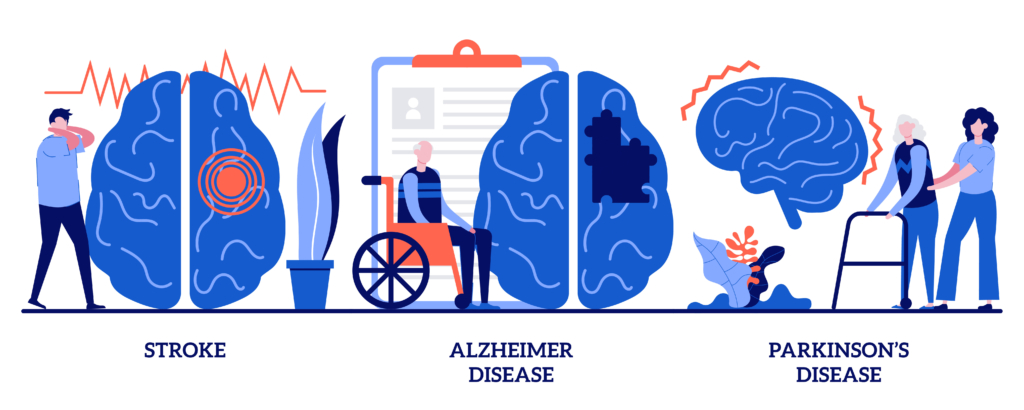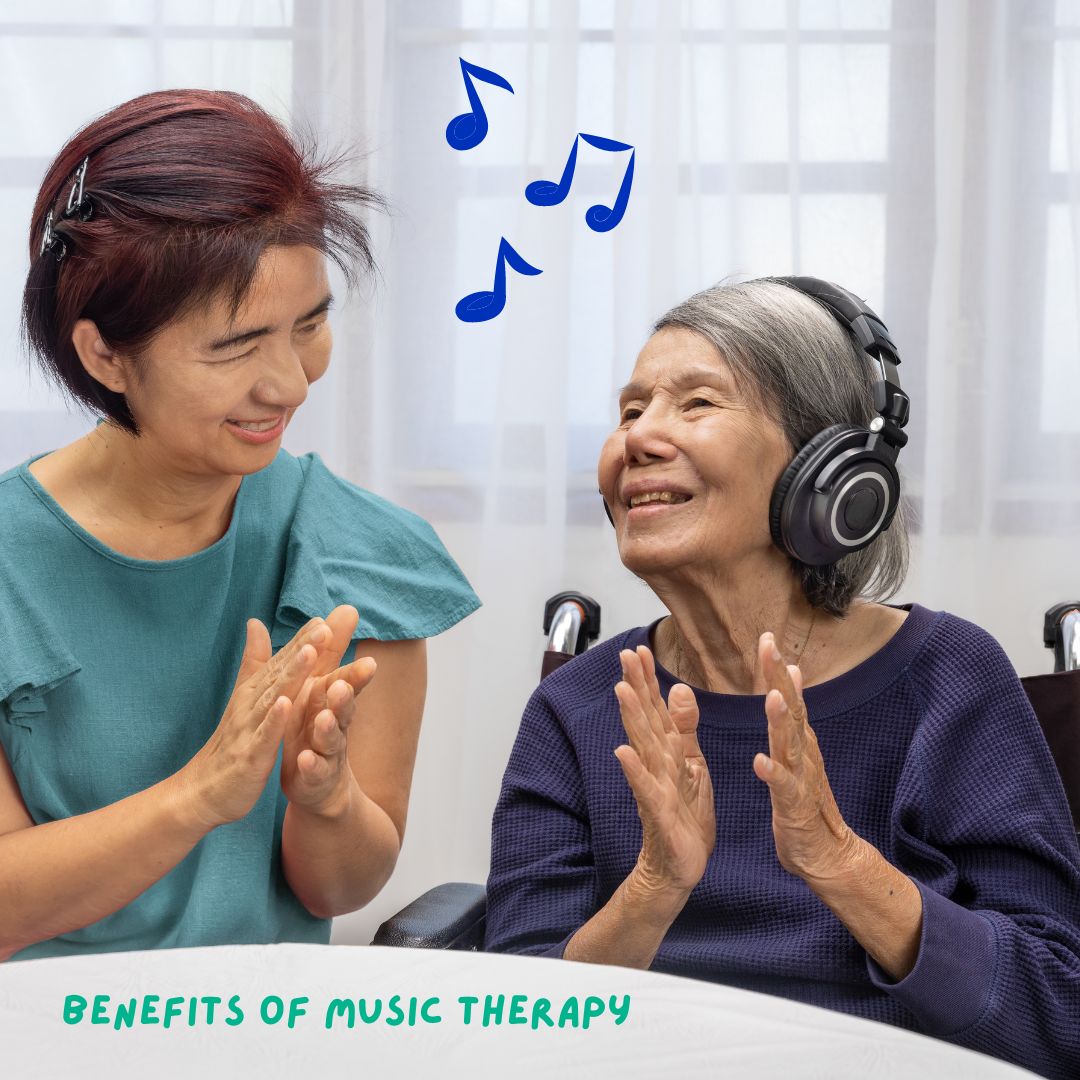| Your Nurse Advocate Consulting
Music has been an essential part of our lives since the beginning of human civilization. Whether it’s played in the background during a yoga session or belted out in the shower, music has always been an integral part of our lives. It touches our soul, ignites our emotions, and brings innumerable benefits to our mental and physical health. Today, we know that music therapy can play an essential role in helping our aging loved ones deal with different illnesses and diseases that come with age, such as Alzheimer’s, Parkinson’s, and depression, to name a few. In this blog post, we’ll explore how music therapy can benefit our elderly family members, what types of illnesses and diseases get benefits by using music therapy, what types of music therapy exist, and how music therapy is used to help our aging seniors.
As we age, it is natural for our physical and mental health to decline. However, we can always find ways to improve our quality of life and make the most of what we have. One such way is through music therapy. Music has the power to soothe our souls and lift our spirits. It can be a powerful tool to unlock emotions, memories, and even physical movements.

Music touches something deep within us, something that crosses both age and culture. And for our aging loved ones, music can be a lifeline that helps them stay engaged, cope with illnesses, and even stave off cognitive decline. In this blog post, we’ll explore the benefits of music therapy for aging adults, discuss the types of illnesses and diseases that can benefit from it, and examine the various types of music therapy used to help seniors.
First, let’s define music therapy. Unlike the type of music many of us enjoy in our daily lives, music therapy is a clinical intervention that uses music to address physical, emotional, cognitive, and social needs. It’s a holistic approach that involves the use of instruments, singing, listening, and movement to help patients achieve their goals and improve their quality of life. Music therapy is particularly beneficial for aging loved ones because it can help them maintain their physical and mental health and reduce stress and pain.
We had the pleasure of interviewing Karla Wilson, a Certified Music Therapist. We have included that video interview here for you so you can be as amazed as we were to learn all the benefits and just how Karla begins to work with new clients and families, enjoy! It was neat how she interviewed us and then without asking chose a piece of music we both responded to. There is certainly more to music than just the basic enjoyment it brings!
Let’s get into the clinical aspects of music therapy. Let’s start at the beginning.
1. What is music therapy?
Music therapy is a form of therapy that uses music to improve physical, emotional, and mental wellbeing. It is a holistic approach that addresses the person’s mind, body, and soul. Music therapy can be delivered in a one-on-one or group setting and can be adapted to meet the individual’s needs and preferences. Music therapists use music as a tool to achieve therapeutic goals such as improving mood, reducing anxiety and stress, enhancing communication, promoting physical movement, and increasing social interaction.
Patients may listen to calming music while doing breathing exercises or meditation. Another form of music therapy is known as active music therapy, which involves playing instruments or singing to help improve motor skills and cognitive function. This type of therapy is particularly helpful for seniors with Parkinson’s disease or stroke. Music therapy may also be used in combination with other therapies such as speech therapy, occupational therapy, and physical therapy.
Music therapy is used to help seniors with a wide range of illnesses and diseases. For instance, research shows that seniors with Alzheimer’s and dementia often respond positively to music therapy. It can help them recall memories, reduce agitation, and increase social interaction. It can help improve their motor function, mood, and communication skills. With one of our Alzheimer’s clients, we watched her unable to remember names and people (even her husband) but she could belt out all the words to her favorite hymns. She enjoyed it so much and singing would often calm her when she became restless and agitated.

By Cultura Creative Adobe Stock Photos
2. How does music therapy benefit our aging loved ones?
Music therapy can benefit our aging loved ones in many ways. It can help to improve their cognitive function, memory, and attention. It can reduce feelings of loneliness, depression, and anxiety often experienced by older adults. Additionally, music therapy can provide a sense of control and empowerment, boost self-esteem and reduce agitation. Music therapy can be especially useful for those with dementia or Alzheimer’s disease, where it can help to unlock memories and emotions, enhance communication, and reduce anxiety.
So, how exactly is music therapy used to help our aging seniors? Music therapy sessions are usually conducted by a certified music therapist who will tailor the therapy to the individual needs and preferences of the patient. Depending on the patient’s goals and needs, a music therapy session may involve listening to music, playing instruments, singing, just simply listening, and improvising. Patients may also be encouraged to move to the rhythm of the music to improve their motor function. Music therapy can be conducted one-on-one, in groups, or in a care facility setting. Music therapy can even be done virtually.
The therapist may also use guided imagery, relaxation techniques, and singing bowls to enhance the therapeutic effects of the music.
Music has been scientifically proven to stimulate multiple areas of the brain simultaneously. Music therapy, as a result, can work wonders in improving the emotional, cognitive, and physical well-being of our aging loved ones. Here are some of the benefits that music therapy can provide:
– Reduces anxiety, stress, and depression
– Boosts mood, self-esteem, and self-confidence
– Enhances cognitive abilities, such as memory and attention
– Helps manage pain and discomfort
– Improves quality of life
– Singing songs or playing instruments to improve social interaction and communication skills.
– Using music to encourage physical movement and exercise.
– Playing relaxing music to help reduce anxiety and stress.
– Using personalized playlists to trigger memories and emotions for those with dementia or Alzheimer’s disease.

3. What types of illnesses and diseases get benefits by using music therapy?
Music therapy has shown remarkable results in helping aging seniors deal with a range of illnesses and diseases, including, but not limited to:
– Alzheimer’s and dementia: Music therapy can evoke memories and enhance communication, which can help people living with Alzheimer’s and dementia.
– Parkinson’s: Music therapy can improve motor skills, coordination, and balance, which can benefit seniors with Parkinson’s.
– Stroke: Music therapy can help restore speech, cognitive skills, movement, and quality of life after a stroke.
– Chronic pain: Music therapy can reduce pain perception, lessen anxiety, and promote relaxation, which benefits seniors with chronic pain.
4. What types of music therapy are there?
There are different types of music therapy approaches that can be used depending on the person’s needs and preferences. Some of these include:
– Receptive music therapy: this involves listening to music with a specific goal in mind, such as relaxation or mood improvement.
– Active music therapy: this involves engaging in music-making activities, such as singing or playing an instrument, to achieve therapeutic goals.
– Music-assisted relaxation therapy: this involves using music to promote relaxation and reduce stress and anxiety.
– Neurologic music therapy: Uses music to target specific neurological processes.
– Music and memory therapy: Evokes memories and emotions through listening to familiar music

Conclusion:
Music therapy is more than just listening to music. It can bring remarkable benefits to our aging loved ones’ emotional, cognitive, and physical well-being. From reducing anxiety and depression to improving memory and coordination, music therapy has proven to be a valuable tool in helping seniors deal with various illnesses and diseases. As we age, we must continue to nurture our minds and bodies with positive and uplifting experiences. Music therapy is one such experience that can bring immense joy and healing to our aging seniors. We have seen the impact on many of our clients. We encourage everyone to consider the benefits of music therapy when looking at ways to improve the quality of your aging loved one’s life.
In conclusion, music therapy is a powerful tool that can benefit our aging loved ones in many ways. Whether it’s reducing stress, improving memory, or promoting relaxation, music can play an important role in maintaining the physical and mental health of seniors. We recommend if you’re considering music therapy for your loved one, it’s important to work with a certified music therapist who can design a therapy program that meets their needs. This makes sure the music therapy is therapeutic and not just random enjoyment. Additionally, you may want to explore the various types of music therapy available to find one that’s the right fit for your loved one. Remember, music is a universal language that can bring joy and meaning to our lives, no matter our age or circumstances.
We hope you have enjoyed this lighter topic as much as we have enjoyed bringing this to you. If you would like to stay in touch and learn what we are sharing around the topic of families and aging parents, consider joining us on our free community forum. You can request to join HERE. Lastly, if you are looking to plan or help your aging parents prepare for their golden years, we have a handout called “The Ultimate Decision and Document List for Advanced Life Planning.” You can get that HERE.
Thanks for stopping by and we will see you back here soon,
Pam and Linda
Your Nurse Advocates
Resources:
Your Nurse Advocate Consulting
https://www.psychologytoday.com/us/therapy-types/music-therapy
https://www.nccih.nih.gov/health/providers/digest/music-and-health-science




